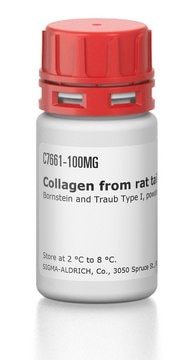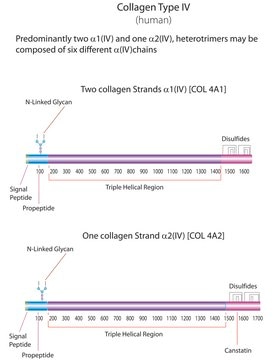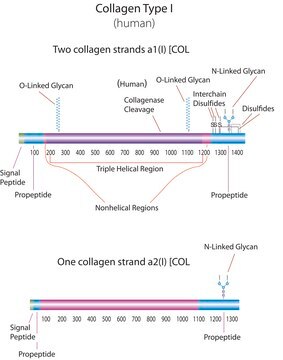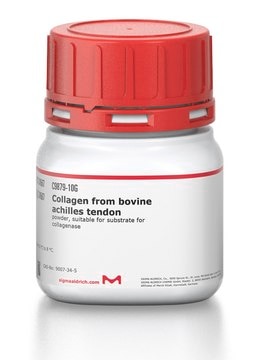C2249
Collagen Solution from human fibroblasts
3 mg/mL, sterile-filtered, BioReagent, suitable for cell culture
About This Item
Recommended Products
biological source
human fibroblasts
Quality Level
sterility
sterile-filtered
product line
BioReagent
form
solution
packaging
pkg of 20 mL
concentration
3 mg/mL
technique(s)
cell culture | mammalian: suitable
surface coverage
6‑10 μg/cm2
binding specificity
Peptide Source: Collagen
Peptide Source: Elastin
foreign activity
endotoxin ≤5.0 μmole/min-mg protein
shipped in
wet ice
storage temp.
2-8°C
Related Categories
General description
Application
- as a component of coating solution for human bone marrow chip fabrication.
- in fibroblast-like synoviocytes culturing.
- as a coating solution for microchannels for organ chip culture
Biochem/physiol Actions
Storage Class
10 - Combustible liquids
wgk_germany
nwg
flash_point_f
Not applicable
flash_point_c
Not applicable
Certificates of Analysis (COA)
Search for Certificates of Analysis (COA) by entering the products Lot/Batch Number. Lot and Batch Numbers can be found on a product’s label following the words ‘Lot’ or ‘Batch’.
Already Own This Product?
Find documentation for the products that you have recently purchased in the Document Library.
Customers Also Viewed
Articles
Extracellular matrix proteins such as laminin, collagen, and fibronectin can be used as cell attachment substrates in cell culture.
Our team of scientists has experience in all areas of research including Life Science, Material Science, Chemical Synthesis, Chromatography, Analytical and many others.
Contact Technical Service




